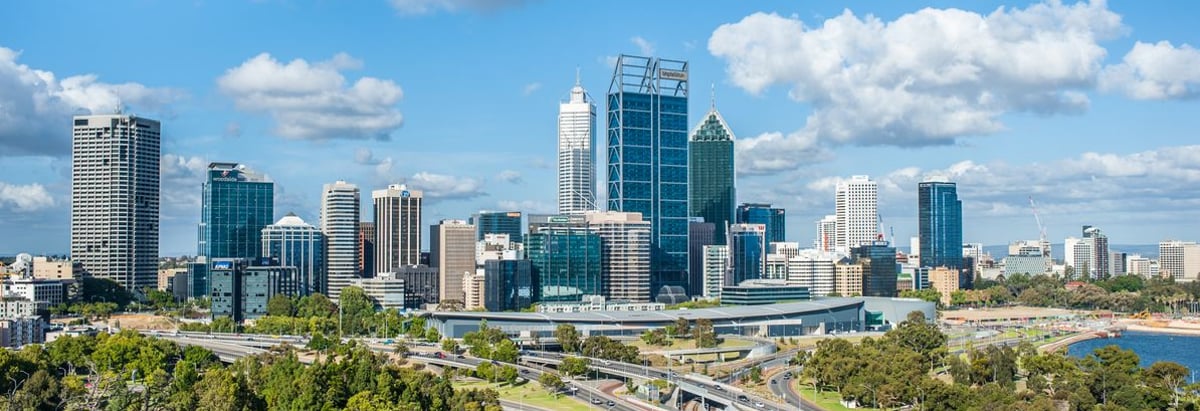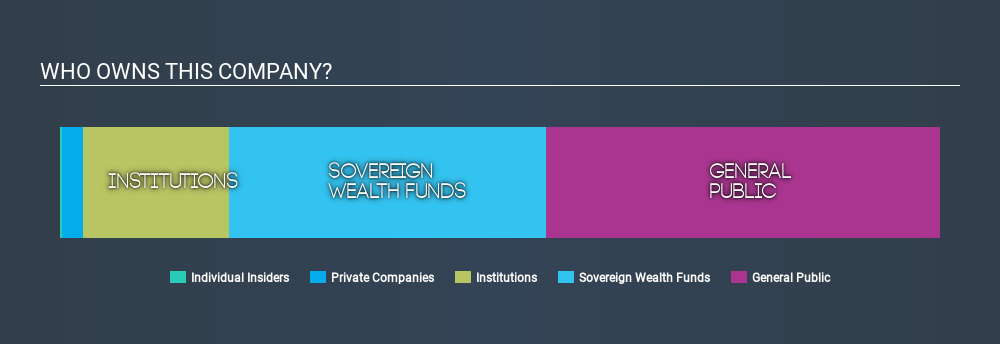How Many Mapletree North Asia Commercial Trust (SGX:RW0U) Shares Do Institutions Own?

If you want to know who really controls Mapletree North Asia Commercial Trust (SGX:RW0U), then you'll have to look at the makeup of its share registry. Generally speaking, as a company grows, institutions will increase their ownership. Conversely, insiders often decrease their ownership over time. We also tend to see lower insider ownership in companies that were previously publicly owned.
Mapletree North Asia Commercial Trust isn't enormous, but it's not particularly small either. It has a market capitalization of S$3.0b, which means it would generally expect to see some institutions on the share registry. Our analysis of the ownership of the company, below, shows that institutional investors have bought into the company. Let's delve deeper into each type of owner, to discover more about Mapletree North Asia Commercial Trust.
Check out our latest analysis for Mapletree North Asia Commercial Trust

What Does The Institutional Ownership Tell Us About Mapletree North Asia Commercial Trust?
Institutional investors commonly compare their own returns to the returns of a commonly followed index. So they generally do consider buying larger companies that are included in the relevant benchmark index.
We can see that Mapletree North Asia Commercial Trust does have institutional investors; and they hold 17% of the stock. This implies the analysts working for those institutions have looked at the stock and they like it. But just like anyone else, they could be wrong. It is not uncommon to see a big share price drop if two large institutional investors try to sell out of a stock at the same time. So it is worth checking the past earnings trajectory of Mapletree North Asia Commercial Trust, (below). Of course, keep in mind that there are other factors to consider, too.

Hedge funds don't have many shares in Mapletree North Asia Commercial Trust. Looking at our data, we can see that the largest shareholder is Temasek Holdings (Private) Limited with 36% of shares outstanding. The second and third largest shareholders are Schroder Investment Management Limited and Mapletree North Asia Property Management Limited, holding 4.9% and 2.2%, respectively.
We also observed that the top 10 shareholders account for 50% of the register, with a few smaller shareholders to balance the interests of the larger ones to a certain extent.
Researching institutional ownership is a good way to gauge and filter a stock's expected performance. The same can be achieved by studying analyst sentiments. Quite a few analysts cover the stock, so you could look into forecast growth quite easily.
Insider Ownership Of Mapletree North Asia Commercial Trust
The definition of company insiders can be subjective, and does vary between jurisdictions. Our data reflects individual insiders, capturing board members at the very least. Company management run the business, but the CEO will answer to the board, even if he or she is a member of it.
Most consider insider ownership a positive because it can indicate the board is well aligned with other shareholders. However, on some occasions too much power is concentrated within this group.
Our data suggests that insiders own under 1% of Mapletree North Asia Commercial Trust in their own names. We do note, however, it is possible insiders have an indirect interest through a private company or other corporate structure. It is a pretty big company, so it would be possible for board members to own a meaningful interest in the company, without owning much of a proportional interest. In this case, they own around S$9.6m worth of shares (at current prices). It is good to see board members owning shares, but it might be worth checking if those insiders have been buying.
General Public Ownership
The general public holds a 45% stake in RW0U. This size of ownership, while considerable, may not be enough to change company policy if the decision is not in sync with other large shareholders.
Next Steps:
I find it very interesting to look at who exactly owns a company. But to truly gain insight, we need to consider other information, too. Consider for instance, the ever-present spectre of investment risk. We've identified 5 warning signs with Mapletree North Asia Commercial Trust (at least 1 which makes us a bit uncomfortable) , and understanding them should be part of your investment process.
But ultimately it is the future, not the past, that will determine how well the owners of this business will do. Therefore we think it advisable to take a look at this free report showing whether analysts are predicting a brighter future.
NB: Figures in this article are calculated using data from the last twelve months, which refer to the 12-month period ending on the last date of the month the financial statement is dated. This may not be consistent with full year annual report figures.
If you spot an error that warrants correction, please contact the editor at editorial-team@simplywallst.com. This article by Simply Wall St is general in nature. It does not constitute a recommendation to buy or sell any stock, and does not take account of your objectives, or your financial situation. Simply Wall St has no position in the stocks mentioned.
We aim to bring you long-term focused research analysis driven by fundamental data. Note that our analysis may not factor in the latest price-sensitive company announcements or qualitative material. Thank you for reading.
About SGX:RW0U
Mapletree North Asia Commercial Trust
Listed on the Singapore Exchange Securities Trading Limited ("SGX-ST") on 7 March 2013, Mapletree North Asia Commercial Trust ("MNACT") is the first real estate investment trust (“REIT”) that offers investors the opportunity to invest in best-in-class commercial properties situated in prime locations in China, in Hong Kong SAR, in Japan and in South Korea.
Moderate growth potential second-rate dividend payer.
Market Insights
Community Narratives


